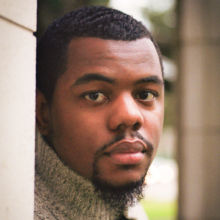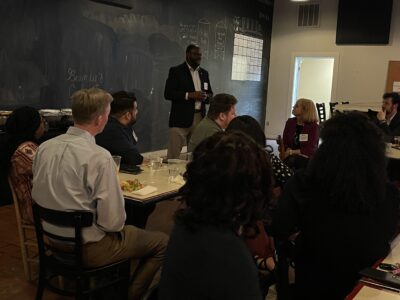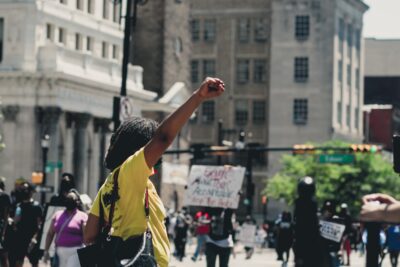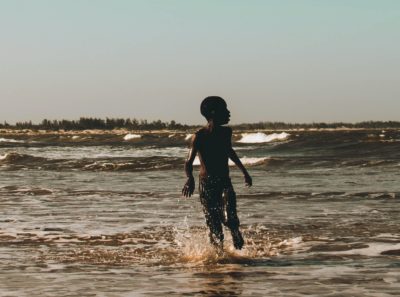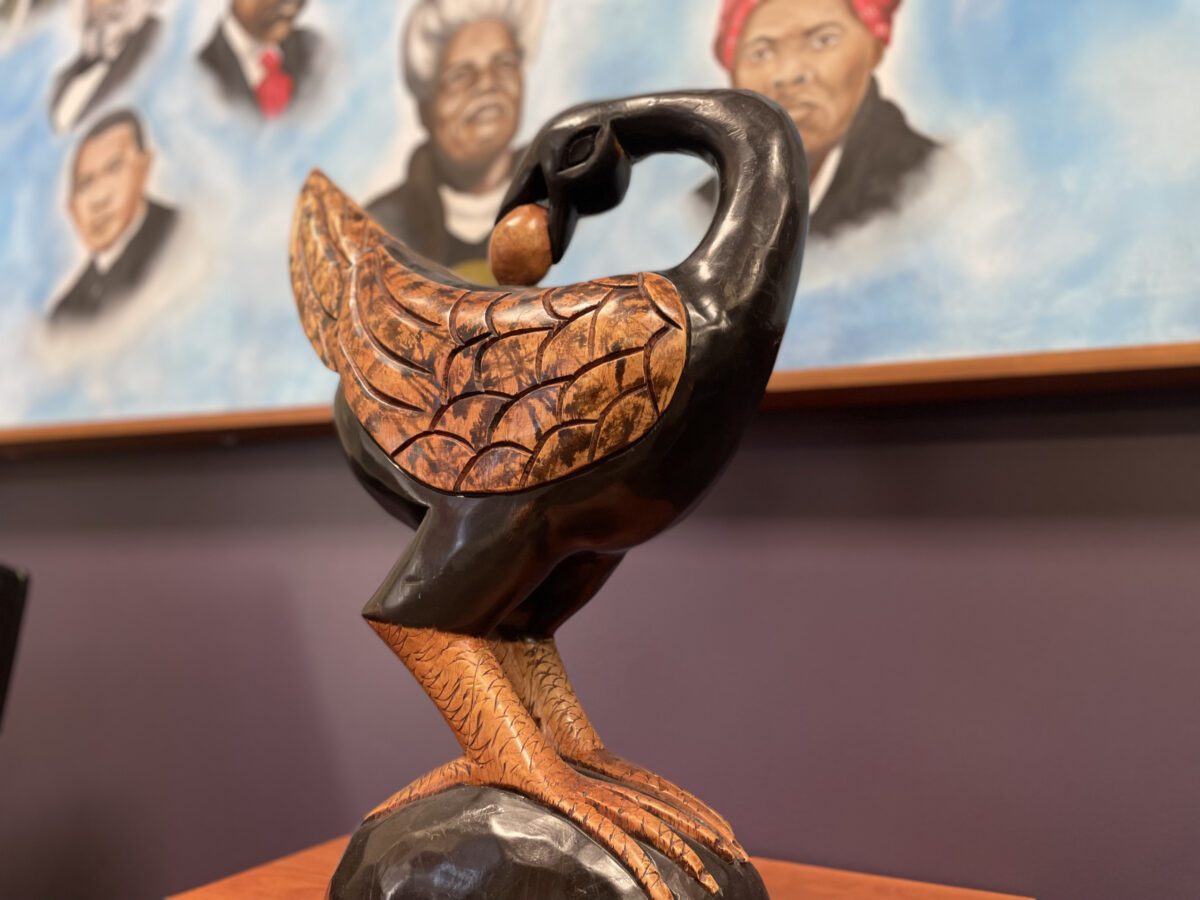

Share this story
|
|
The Akan proverb, “So wo were fi na wosan kofa a yenki,” translates to, “It is not taboo to go back and fetch what you forgot.” Another variation translates to, “Looking to the past to inform the future.” The phrase is associated with the Sankofa symbol, derived from the Akan language of Ghana. This concept served as one of the guiding principles for the first Black Research Symposium (BRS), held in March at North Carolina State University (NC State).
About the symposium
The three day experience emerged from a collaboration between the African American Cultural Center and university libraries at NC State. The event’s purpose was to recognize “Black diasporic learning, scholarship, and epistemologies”
Students, faculty, activists, artists, and community members were among attendees and presenters at the symposium. A wide array of research and discussions were offered in a variety of formats, which centered on the theme, “The Power of Community: Afro-Diasporic Worldbuilding and a Sustainable Futurity.”
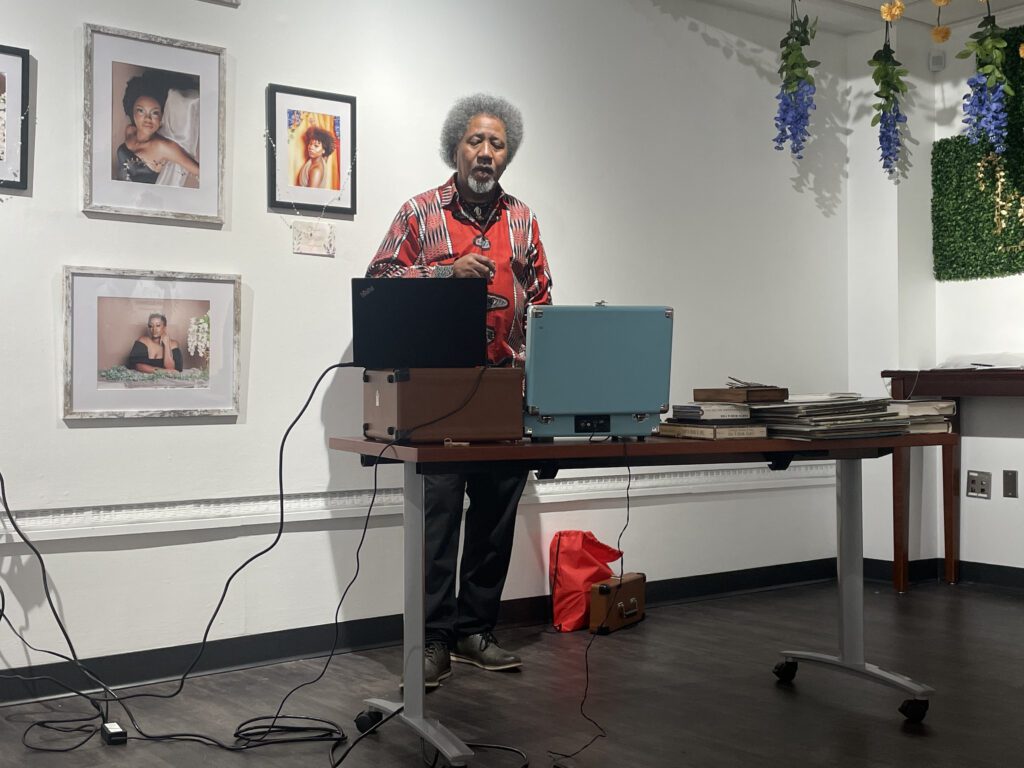

Aligned to the ideals of the Sankofa symbol, BRS employed an interdisciplinary approach to exploring history, making ties to the present and allowing space to envision the future. According to the event description, the theme was rooted in the following central questions:
- What is required to create a Black futurity where Black people are thriving?
- What do we need to sustain our communities?
- What critical theory and frameworks must we engage in order to address social problems across the Black Diaspora?
- What type of political economics, systems, and institutions need to be abolished and dismantled?
- How do we build a future that is sovereign, just, and sustainable?
The grounding document for the event cited Marimba Ani’s “Yurugu,” which critiques predominantly Western views, knowledge, and research, stating that it “centers positivist and materialist frameworks focused on the written word and specific forms of rationalization; thereby, excluding the multiple ways of knowing that are embodied and practiced everyday among diverse communities around the world.”
So as to not replicate the Western model, BRS organizers detailed an event structure focused on honoring “ways of knowing by Afro-Diasporic peoples that are both ancestral and historical; intuitive and empirical; spiritual and pragmatic.”
Array of Black thought and storytelling
On display at the BRS was a spectrum of Black thought and storytelling through versatile visual and oral presentations, including panels, digital posters, and performances. The opportunity established a uniquely tailored space in academia where Black people across generations and geographical origins could delve into how technology is embedded in the fabric of Blackness.
Established was a space to announce contention among each other’s perspectives while simultaneously engaging in fruitful discourse around both shared and differing experiences. Established was a space that was not relegated to highlighting plight, but rather to fostering community and celebrating culture. Established was a space not only to explore lessons from the past, but to nurture the act of wondering about the future. The following are a few highlights of presentations from the symposium.
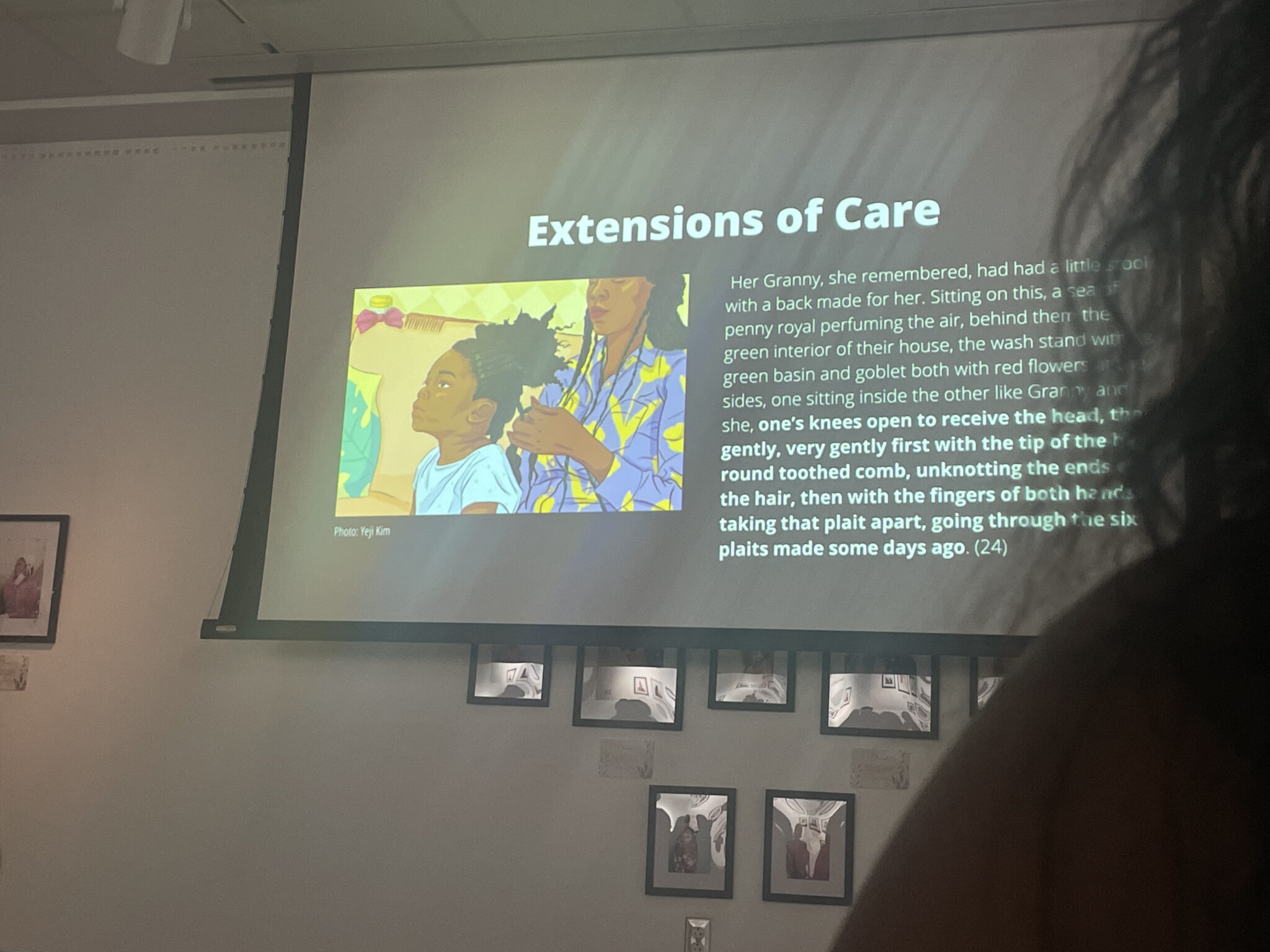

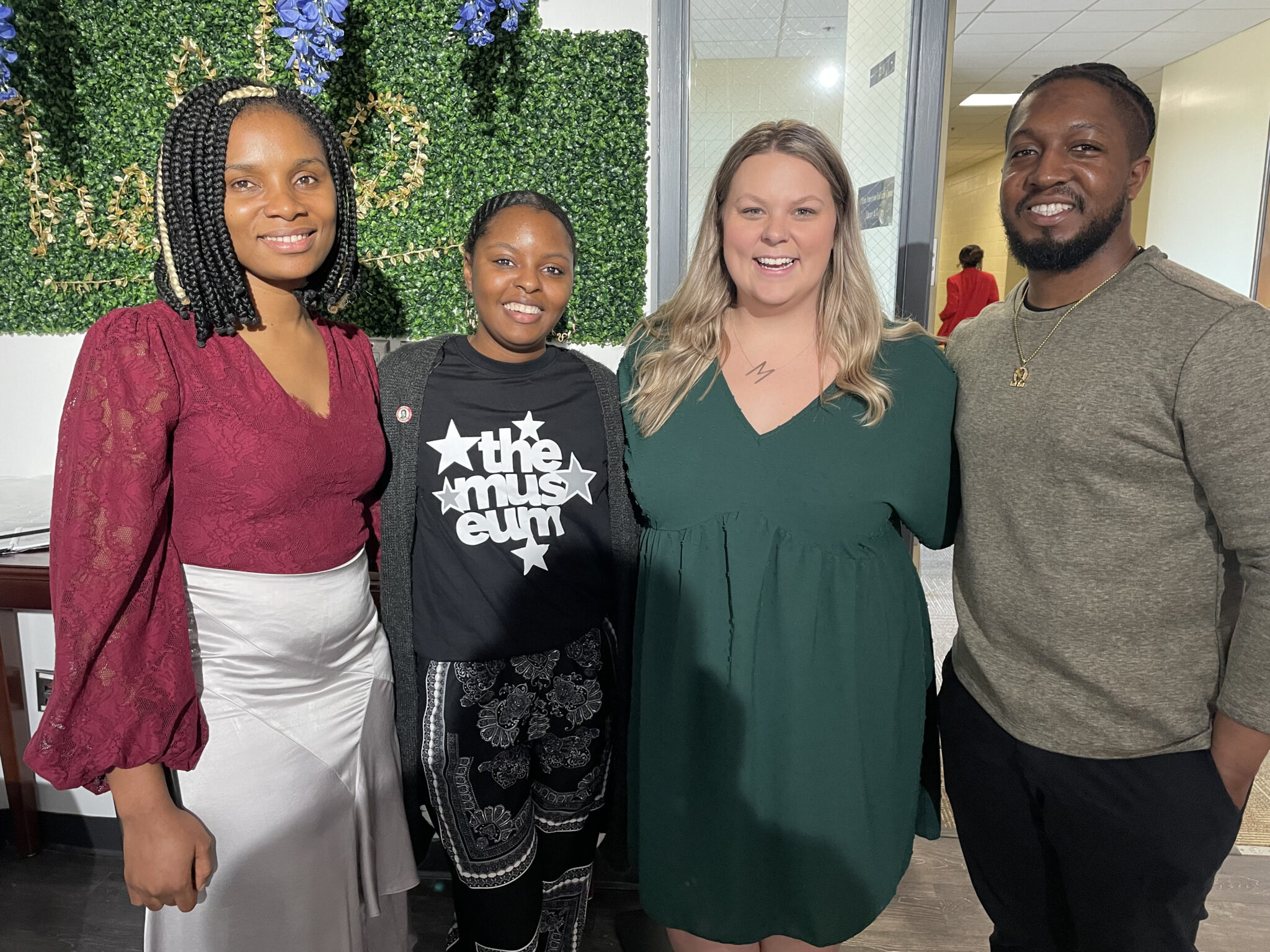

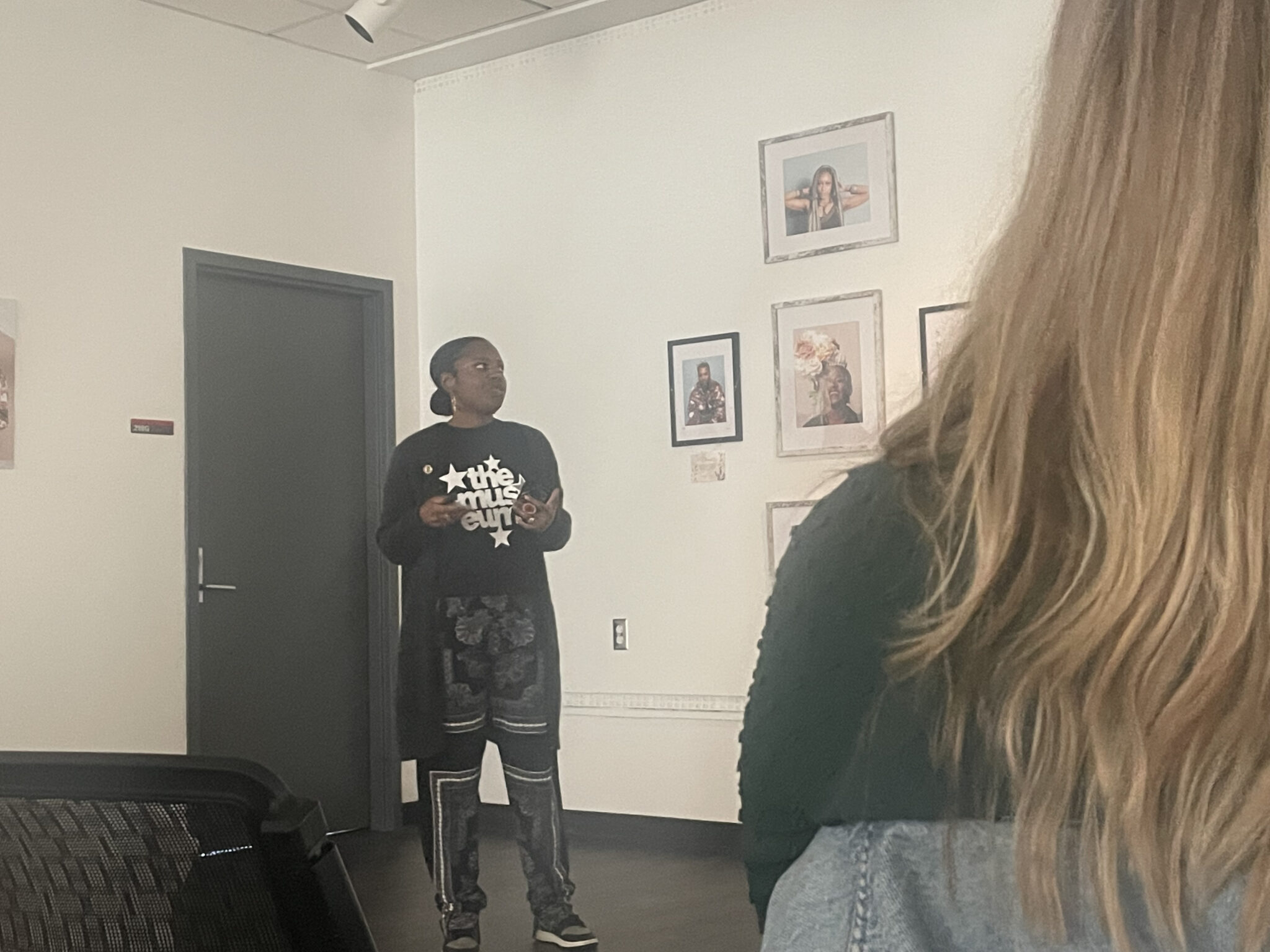

The technology of braiding Black hair
Maurika Smutherman is a second year NC State PhD student in the Communication, Rhetoric and Digital Media Program. Through her work, she aims to push the narrative that Black people engage with technology in all aspects of their lives, acknowledging that there are different ways to conceptualize technology that doesn’t always have to include digital or electronic media.
Smutherman’s first presentation at the BRS was titled, “Braiding the Atlas: Radical Story Mapping in the Black Diaspora.” She depicted braided styles of the diaspora as “a terrain that you are mapping identity upon.” A significant point was recognizing braiding as digital, supported by the use of digits (fingers) in the coding of information (braids). She suggested that “braids are haptic or tactile mapping technologies through which the braider and the subject feel one another hand to hair.”
Smutherman went on to reference Sonya Clark’s Hair Craft Project, quoting the description of a hairdresser’s ability to “map a head with a comb and manipulate the fiber we grow into complex form.” This aligned with what Smutherman referred to as “heritage algorithm,” detailed by “thinking about the hair as a material that we can use to map the self or to create meaning,” which is achieved by following an algorithm.
Endarkened storywork in counseling
Dr. Brean’a Parker is an assistant professor in counseling in NC State’s Counselor Education Program. Using Dr. Stephanie Toliver’s Endarkened storywork as a framework, Parker’s research focuses on understanding the experiences of Black survivors of interpersonal violence. More specifically, they discussed “how story listening to survivor narratives and testimonies offer an entryway into worldbuilding to end violence and create community accountability.”
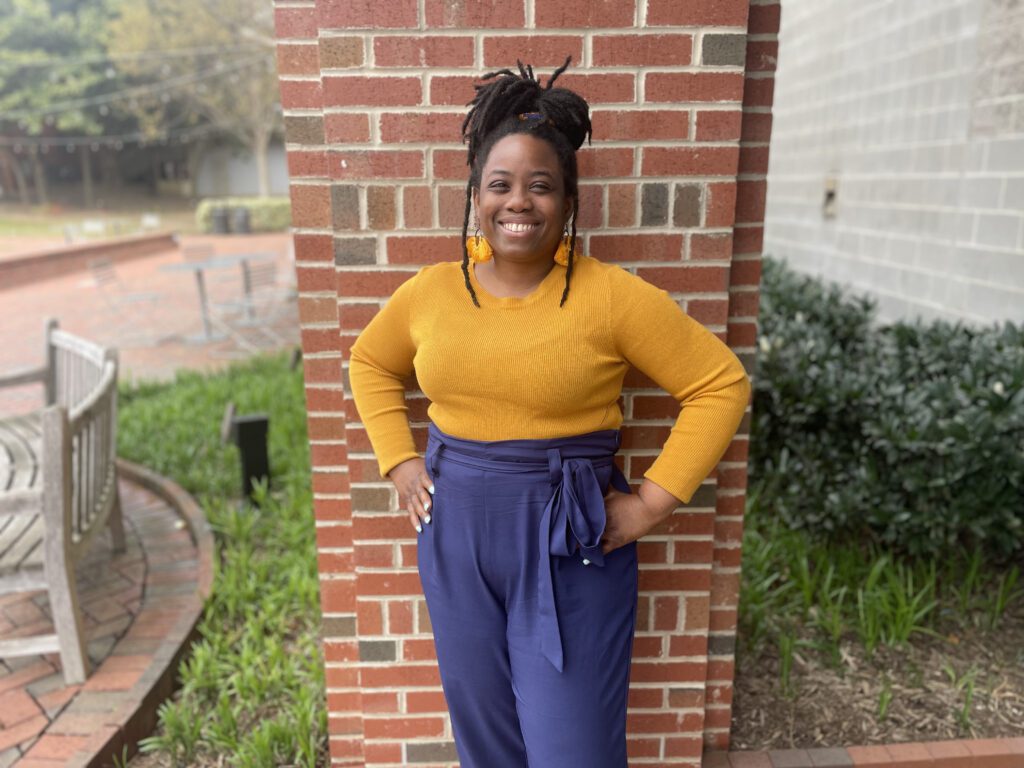

Parker’s themes derived from 14 Black woman storytellers regarding their history with violence. One of those women reflected on their expectation and feeling of preparation to experience different forms of violence and trauma based on the objectification and exploitation of Black women bodies.
Another important focus was the way in which the storytellers processed their experiences, to which Dr. Parker stated, “As counselors, we privilege talk therapy. We also privilege people who are able to process things and tell us their own insights so that we can help them.”
In alignment with worldbuilding, or the imagining of a new world through storytelling, Dr. Parker posed the question, “What does it mean for counseling to think about the different ways that people process trauma?”
Afrofuturism in literacy and agriculture
Dr. Stephanie Toliver, an author and literature professor at the University of Colorado Boulder, was joined by Kamal Bell, founder of Sankofa Farms, an organization working to maintain a sustainable food source for minority communities in and around Orange County, as one of the keynote speakers. The pair’s address focused on a discussion of Afrofuturism, worldbuilding, and sustainability.
Dr. Toliver shared her view of Afrofuturism through the lens of Black authors. Her perspective is rooted in Black authors “creating texts in order to reclaim and recover the past. She explains that it is important to counter negative narratives while elevating positive realities that exist in the present. In all, her approach focuses on the day to day action of dreaming and using literacy to create new possible futures.
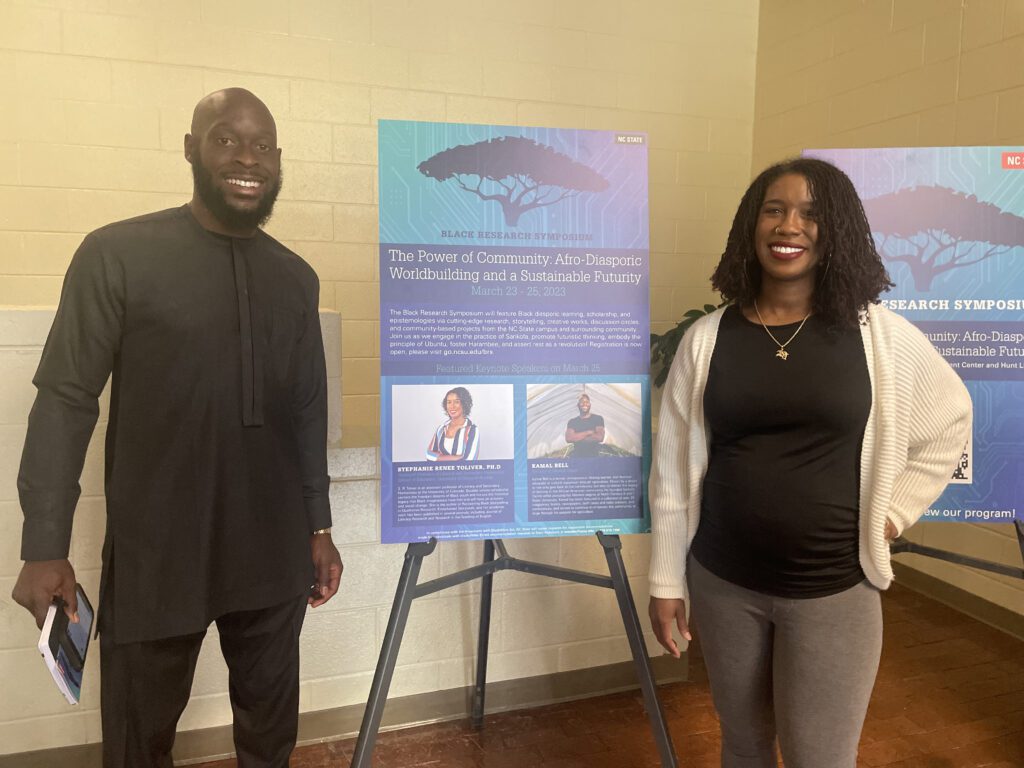

As both a former high school English teacher and as an author, Dr. Toliver explores nontraditional pathways within academia. For example, instead of having her students write argumentative essays in the standard five paragraph format, students wrote stories incorporating characters and dialogue to reflect their arguments. Dr. Toliver uses storytelling in a similar way, composing her dissertation as a Sci-Fi novel. In an academic setting where she has often been told that her approach isn’t considered “real research,” she continues to dream, challenge, and build, particularly for those who come after her.
Bell shared his views of Afrofuturism through a discussion of agriculture. He stated that his view is centered on “knowing who we are as a people ” and on the challenges that have been experienced in the past in order to inform the future. According to Bell, the farm is an engine to rebuild civilization, focusing not only on food, but also on land ownership.
Thinking of the future, Bell believes that this is an opportune time for Black people to reimagine themselves in agriculture, and all that it offers beyond farming. When speaking of agriculture as a necessity for sustainability, Bell is adamant that “we can create something better for ourselves, we can dream it, we can actually go out and do it.”
The the past and future converge through AI
Dr. Derek Ham is the department head and associate professor of Media, Arts, Design and Technology at NC State. Through his work, the past, present and future converge using virtual reality. In collaboration with the Negro League Baseball Museum and with support from Epic Games and Reallusion, Dr. Ham developed Barnstormers: Determined to Win. Barnstormers immerses participants in a virtual reality experience, engaging with the story telling of Negro League Baseball players. Dr. Ham provided greater detail about the use of artificial intelligence (AI) to capture the unique motions and mannerisms of the baseball legends. Looking to the future, Dr. Ham shared his hopes of advancements in AI to bring more opportunities to further “re-examine and reclaim moments in Black and Civil Rights history.”


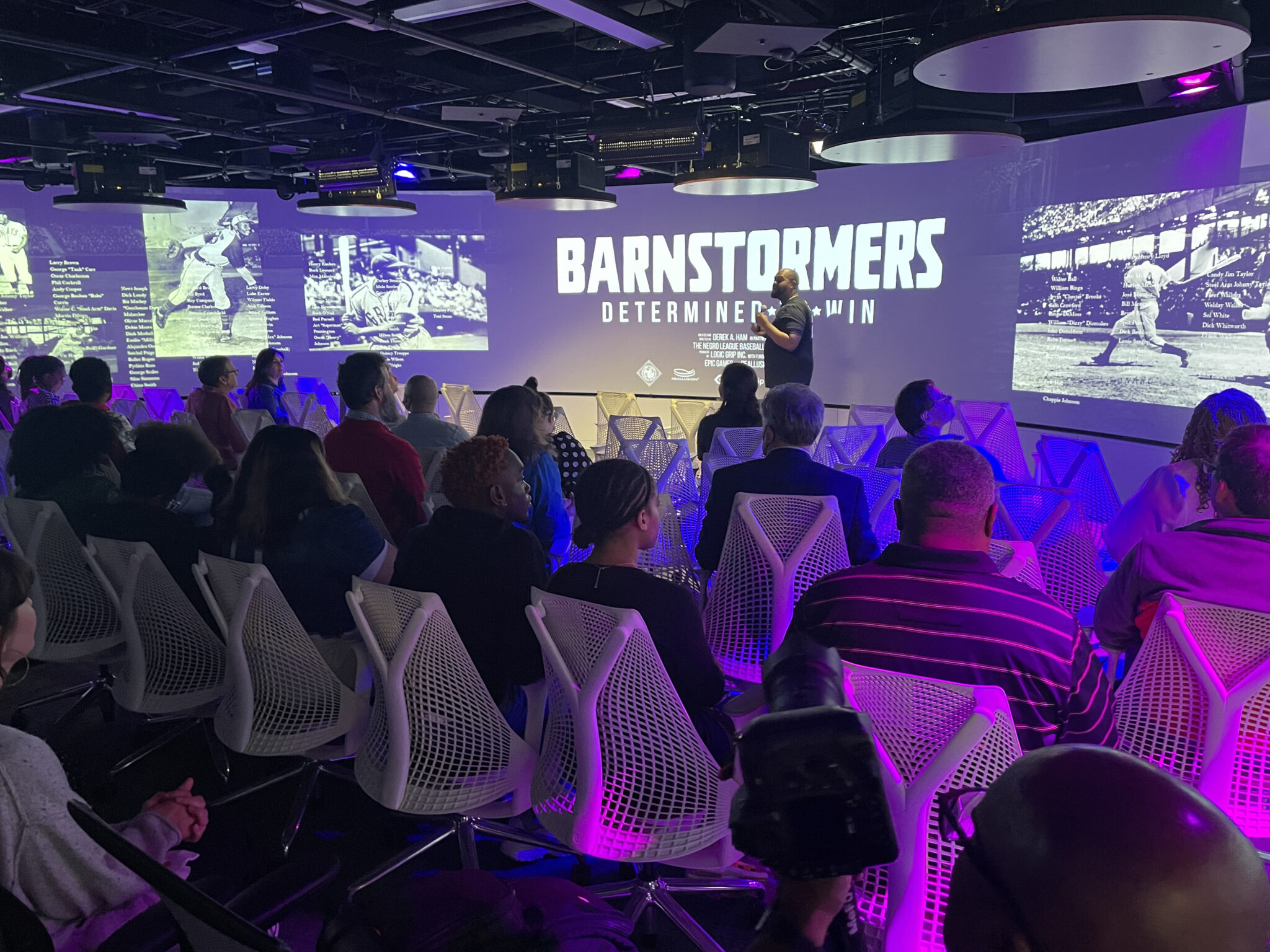

Envisioning the future of the BRS
For the director of the African American Cultural Center at NC State, angela gay-audre, the symposium was a dream come true. Speaking about the collaboration with the libraries, they expressed the desire to see a space for “black knowledge and black epistemologies, our ways of knowing, our ways of being, the multiple ways that we carry wisdom, and we share wisdom … to be honored, to be valued, to be heard, and to be shared.
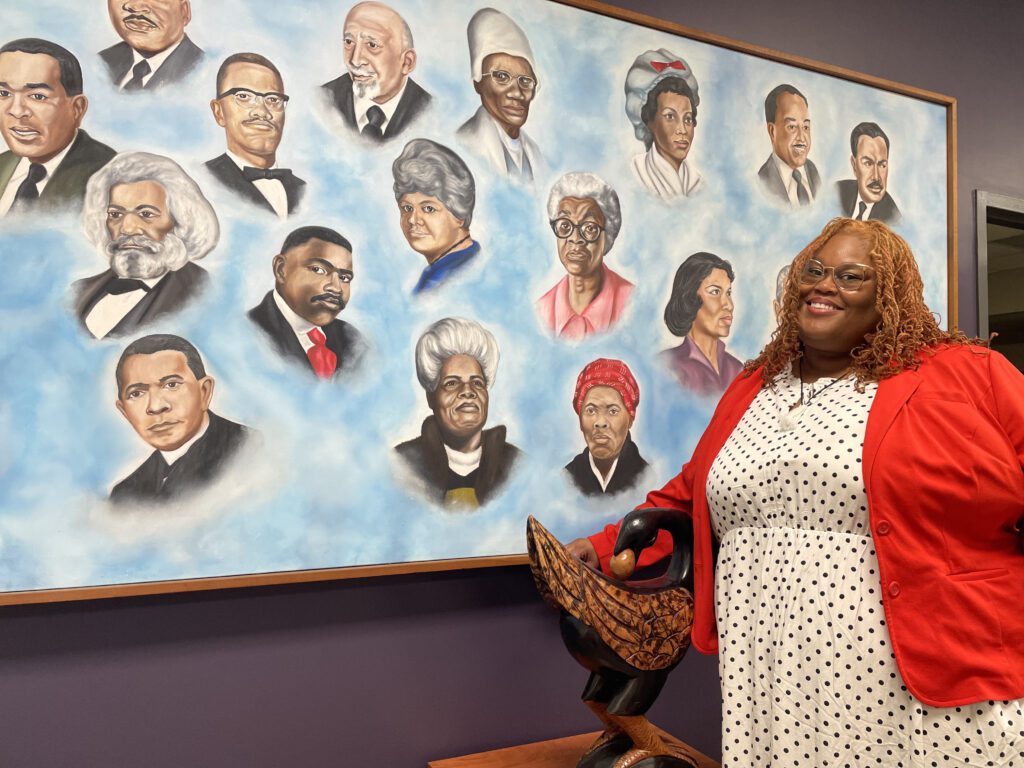

gay-audre envisions a future in which the BRS and similar events are institutionalized beyond local universities like NC State. They defined the future of BRS as being woven into the fabric of the institution, being fully funded, and importantly, requiring less justification for its existence:
“Most of the time we move through these educational systems, we’re taught that we were supposed to whitewash ourselves at some point in time; that we have to acculturate into something else; that who we are and what we bring don’t matter. This sort of Symposium on Black Research Symposium that centers us at the core says that, no, we do. Everything that we bring can be brought into the future. It can stay with us; we can hope that we can be authentic to it, and everyone else has the opportunity to witness and honor it.”
angela gay-audre, director of the African American Cultural Center at NC State
